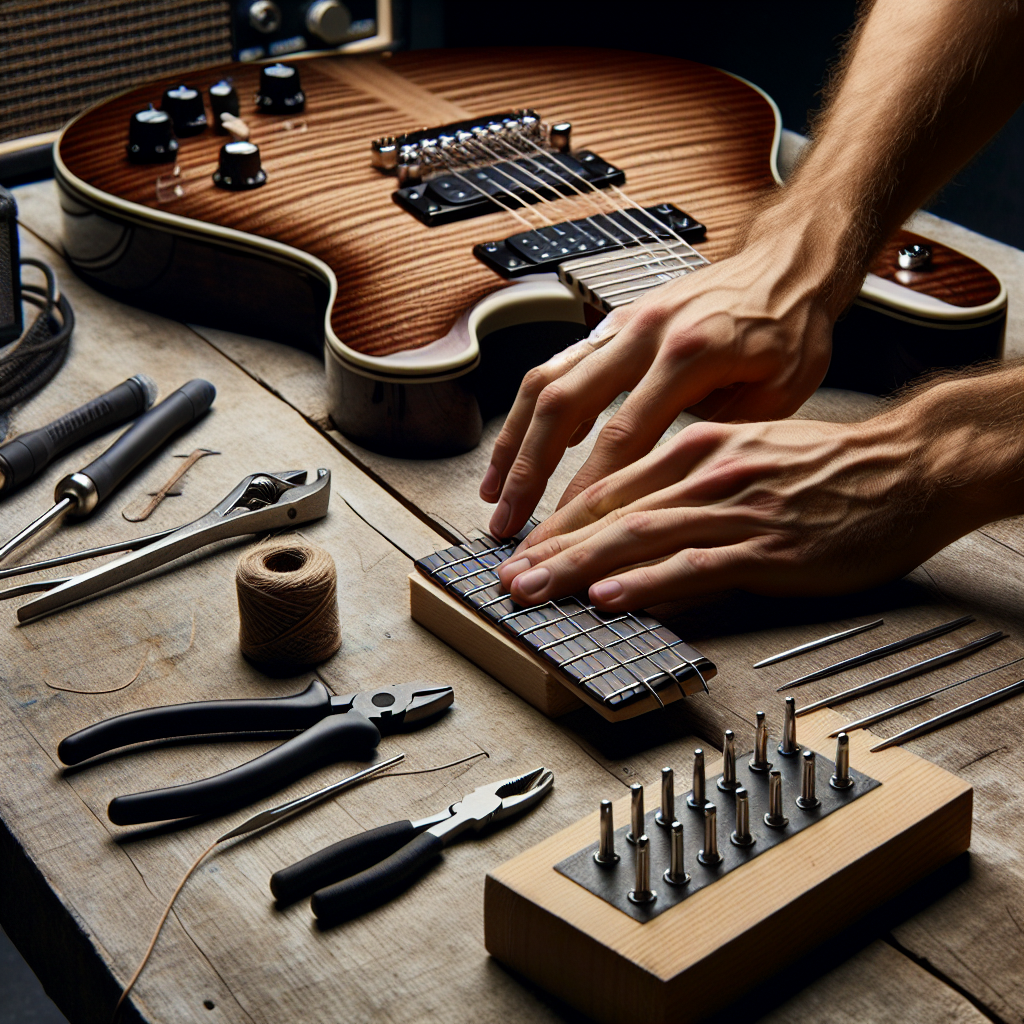
7 Powerful Steps to Level and Crown Frets at Home
Imagine this: you’re playing your beloved guitar, and suddenly, you notice unwelcome buzzing sounds or difficulty in getting clear tones. The culprit? Uneven frets. Fear not, as learning how to level and crown frets at home can save your guitar and enhance its playability. This guide will walk you through the process, ensuring your guitar delivers nothing short of perfect notes.
Understanding the Importance of Fret Leveling and Crowning
Fret leveling and crowning are crucial for maintaining a guitar’s playability. When frets are uneven, they can cause buzzing and intonation issues. Leveling ensures all frets are at the same height, while crowning gives them a rounded shape, which improves playability and tone. This process can breathe new life into your instrument, ensuring it stays in tune and plays smoothly.
Gather Your Tools
Before diving in, it’s important to gather the necessary tools for fret leveling and crowning. Here’s what you’ll need:
- Fret levelling file: A flat file designed specifically for leveling frets.
- Fret rocker: A small tool used to identify uneven frets.
- Crowning file: A specialized file used to round the tops of the frets.
- Sandpaper and polishing materials: Used to smooth and polish the frets after leveling.
- Masking tape: To protect the guitar fingerboard during the process.
- Straightedge: To keep track of the neck’s straightness.
Step-by-Step: Leveling the Frets
Tackling Fret Crowning
Once your frets are level, it’s time to crown them. Crowning restores the rounded shape on the top of the frets, crucial for smooth playability:
Finishing Touches
Your last steps involve cleaning up and making sure your guitar is ready to play:
FAQs
1. Why do my frets need leveling and crowning?
Frets need leveling and crowning when they become uneven, causing buzzing or affecting the guitar’s intonation and playability.
2. Can I level and crown frets without professional help?
Yes, with the right tools and careful attention, you can level and crown frets at home. However, if you’re unsure, consulting a professional is a good idea.
3. How often should frets be leveled and crowned?
It depends on usage and wear. Typically, if you notice buzzing or playability issues, it’s time to consider leveling and crowning the frets.
4. What risks are involved in DIY fret leveling?
There’s a risk of damaging the fretboard or removing too much material from the frets, which could require professional repair.
5. How can I maintain my frets after leveling and crowning?
Regular cleaning and proper string tension can help maintain the condition of your frets. Avoid excessive moisture and handle your guitar with care.
6. What should I do if I make a mistake while leveling?
If you make a mistake, consult a professional luthier to fix any issues. Precision is crucial, and correcting errors promptly will prevent further damage.
Conclusion
Learning how to level and crown frets at home empowers you to maintain your guitar and improve its sound and playability. With patience, practice, and the right tools, you can keep your guitar in top condition without the need for professional intervention. Remember to approach the process methodically, and don’t hesitate to seek expert advice if needed. Happy playing!
For more detailed guidance on guitar maintenance, consider visiting a trusted source like MusicRadar for additional tips and insights.